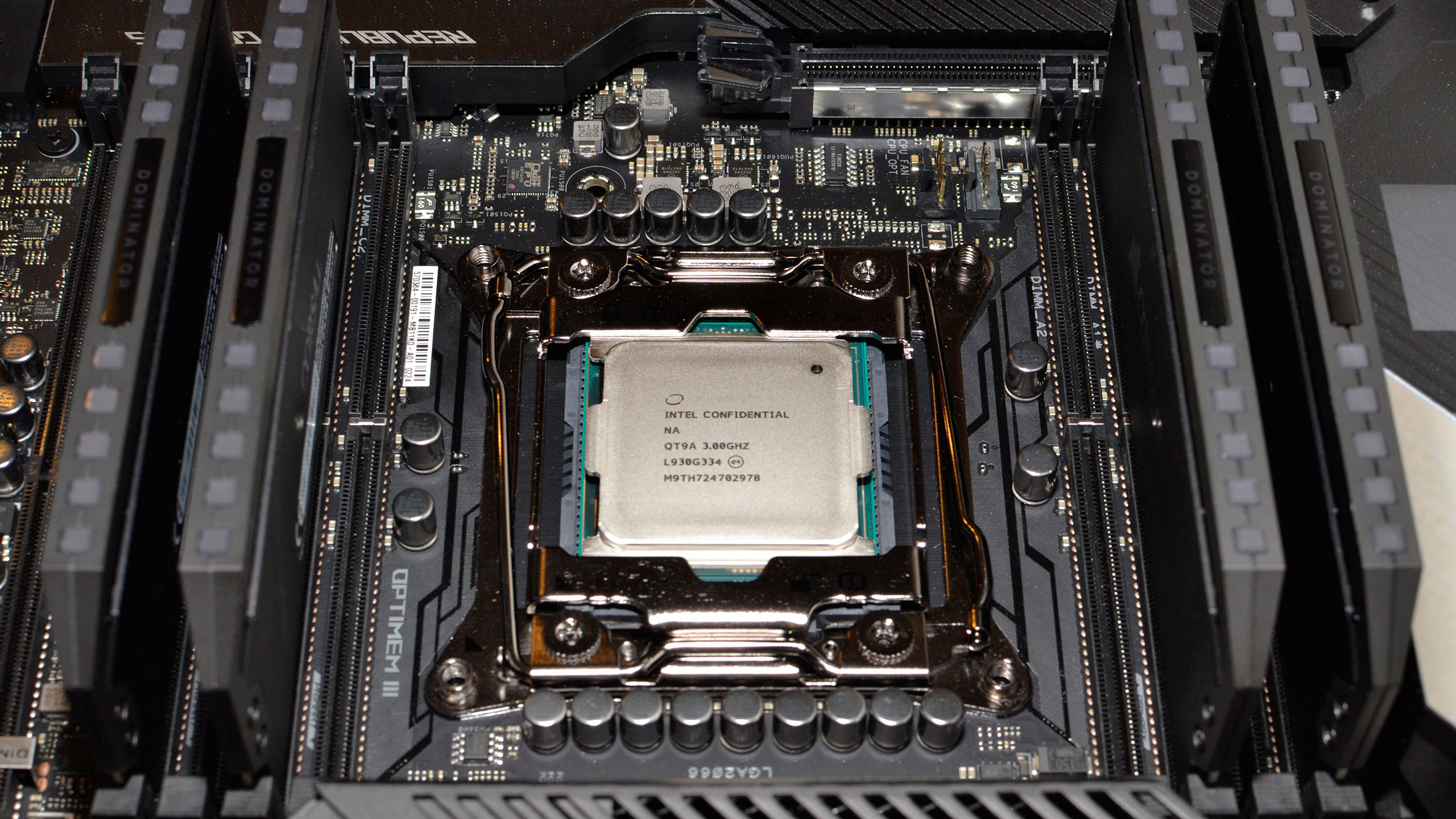Intel is still fighting a 10-year-old €1.06 billion antitrust fine for CPU rebates
Simply put, Intel claims EU regulators "got it wrong" when determining AMD was at an unfair disadvantage.

In today's "what year is it?" news, Intel is fighting back against a massive €1.06 billion (~$1.2 billion) antitrust fine the European Commission levied against it—way back in 2009. I thought the matter was settled years ago, but apparently not. More than a decade later, the European Union's General Court is re-hearing the case.
So, what's this all about? In 2009, the Commission smacked Intel with what was at the time a record fine for "engaging in illegal anticompetitive practices to exclude competitors from the market for computer chips called x86 central processing units."
The case was mainly about rebates being offered to OEMs like Dell and HP.
"Intel gave wholly or partially hidden rebates to computer manufacturers on condition that they bought all, or almost all, their x86 CPUs from Intel. Intel also made direct payments to a major retailer on condition it stock only computers with Intel x86 CPUs," the Commission said.
The Commission also took issue with Intel making direct payments to PC makers to "halt or delay the launch of specific products containing competitors' x86 CPUs and to limit the sales channels available to these products."
In short, the Commission determined that strings attached to the rebates created an uneven and unfair playing field that made it more difficult for rival AMD to sell its x86 processors.
"Intel structured its pricing policy to ensure that a computer manufacturer which opted to buy AMD CPUs for that part of its needs that was open to competition would consequently lose the rebate (or a large part of it) that Intel provided for the much greater part of its needs for which the computer manufacturer had no choice but to buy from Intel," the Commission said.
Keep up to date with the most important stories and the best deals, as picked by the PC Gamer team.
The appeals process being what it is, this case has dragged on for nearly 11 years since the fine was issued. Intel did actually pay the fine, but has been challenging it ever since. In 2014, it lost a challenge, but then in 2017 the EU Court of Justice, which is the highest court in the EU, disagreed with the 2014 ruling and said the case should be heard again.
"The Commission either took a wrong approach in its decision or it carried out an as efficient competitor (AEC) test and it got it wrong," Intel's lawyer Daniel Beard told the panel of five judges.
Intel's fine now ranks as the third-largest ever levied by the Commission. The two biggest fines both belong to Google, which was fined €2.42 billion (~$2.73 billion) in 2017 and €4.34 billion (~$4.89 billion) in 2018.
It will be interesting to see how this goes. Intel has maintained that its "actions were lawful and did not harm competition." Mike Bruzzone, an analyst with Seeking Alpha, disagrees and believes these appeals are an "unnecessary time drain," claiming "associate attorneys love to suck additional fees out of Intel."
Even more interesting than just the outcome is what ramifications it might have in the future. For example, if Intel were to get the fine overturned, would it pursue the same kinds of rebates again? And if so, would companies bite, now that AMD is offering competitive products across its entire CPU stack? Answers to those questions will have to wait for another day.
Paul has been playing PC games and raking his knuckles on computer hardware since the Commodore 64. He does not have any tattoos, but thinks it would be cool to get one that reads LOAD"*",8,1. In his off time, he rides motorcycles and wrestles alligators (only one of those is true).


